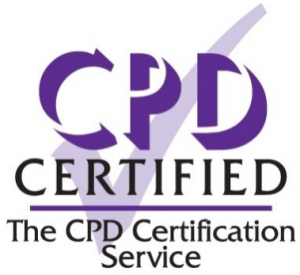- Overview
-
In June 2023, The British Standard Institute published landmark menstruation, menstrual health and menopause in the workplace guidance. It recommended comprehensive change and support for people menstruating at work and included a number of suggested measures and strategies. This coincides with the Minister for Women’s Health announcement to make periods and women’s health research a government priority in January 2024. In November 2023, 8% of women surveyed by the CIPD have considered leaving their jobs due to a lack of support provision relating to menstrual symptoms, indicating that there is a robust business case and clear moral argument for supporting staff menstruating at work.
- More than two-thirds of women experience a negative impact at work due to menstruation symptoms
- Just 1 in 5 women in the workplace always tell their manager that their absence is related to their menstrual cycle
- 12% of employees report that their organisation provides support for menstrual health in the form of a policy, guidance or training
(CIPD, November 2023)
Join us at The Menstruation in the Workplace Conference 2024 to hear the latest updates and guidance on supporting people menstruating in the workplace, enabling you to develop strategies to improve your organisation’s polices and create a culture free of stigma. You will also learn from best practice case studies addressing key challenges, including providing wellbeing support, managing staff with menstrual conditions, and implementing effective reasonable adjustments. You will be able to share your experiences and challenges faced in supporting menstruating staff through networking with senior colleagues, as well as engaging with the latest best practice to share ideas for moving forward.
Why Attend:
✓ Hear high-level keynotes from leading organisations offering the latest menstruation guidance and advice for HR and management professionals
✓ Case studies showcasing best practice in supporting people experiencing menstrual symptoms in the workplace
✓ A wide range of topics including creating an inclusive culture, implementing training initiatives and developing inclusive policies
✓ Networking opportunities with speakers and senior colleagues
✓ 8 hours of CPD points towards your yearly quotaFor more information please call 0330 058 4285

- Agenda
-
-
Online Registration
-
Chair’s Opening Remarks
Dr Meera Tiwari, Senior Lecturer, University of East London (CONFIRMED)
-
Keynote: Menstruation in the Workplace: Sharing the Latest Guidance and Updates
- Latest updates on menstruation policies: outlining key trends and challenges surrounding menstruation in the workplace
- Insights into successfully implementing reasonable adjustments for menstrual conditions at work
- Adopting a holistic approach to menstruation at work: encompassing mental health and wellbeing support in women’s health initiatives
- Developing an optimal care pathway for women suffering with severe menstruation symptoms to improve productivity
Senior Representative, Department of Health and Social Care (invited)
-
Keynote: Adopting a Whole-Organisation Approach: Developing and Implementing Successful Menstruation Policies
- Building and creating menstrual health policies and support frameworks to
- Engaging with staff from different backgrounds to ensure menstruation policies are inclusive of everyone
- Guidance for sensitively communicating workplace menstruation support initiatives to all staff
- Securing buy-in from senior leaders to implement support strategies and promote open communication
- Advice for conducting risk assessments to identify and measure the impacts of menstruation symptoms on employees
Lutfur Ali, Senior Policy Advisor Equality, Diversity, Inclusion and Transformation, CIPD (invited)
-
Case Study: Implementing Flexible Working Initiatives to Support People with Severe Menstrual Symptoms in the Workplace
- Guidance for consulting with female colleagues to inform an inclusive hybrid working model
- Forming flexible working initiatives that meet and prioritise the needs of staff who menstruate: key tips
- Improving the retention of female staff: strengthening reasonable adjustment procedures for menstrual symptoms
- Measuring the impact of flexible working schemes on women and their career progression to drive future changes
Dan Taylor, Managing Director, Morgan Hunt (invited)
-
Question and Answers
-
Comfort Break
-
Breakout Networking: Driving Improvements in the Experience of Menstruating Staff at Work
This session is an opportunity for you to discuss initiatives and strategies for improving menstruation support in the workplace. It will also allow you to hear from senior colleagues, sharing common obstacles and solutions.
-
Case Study: Delivering Wrap-Around Mental Health and Wellbeing Support to Women Menstruating at Work
- Embedding an organisation-wide culture of openness, diversity, and compassion that encourages staff to seek support
- Implementing policies and initiatives that enable people menstruating to access adequate care
- Signposting sources of support for people menstruating, including counselling opportunities and workplace wellbeing toolkits
- Working with external stakeholders to provide person-centred mental and emotional wellbeing support
Kate Sang, Professor of Gender and Employment Studies, Heriot-Watt University (CONFIRMED)
-
Case Study: Destigmatising Menstruation in the Workplace: Tackling Discrimination and Facilitating Open Conversations
- Identifying and sharing the current challenges that people experiencing menstrual symptoms face in the workplace
- Engaging with staff with lived experience of menstruation to embed their views into policies and improvements that further destigmatise menstruation at work
- Upskilling line managers and senior colleagues to sensitively manage employees dealing with menstrual symptoms
- Training staff to adopt inclusive language when discussing menstruation and menstrual conditions in the workplace
Elysha Paige, Director, Bloody Good Employers (CONFIRMED)
-
Case Study: Improving Understanding and Awareness of Menstrual Conditions in the Workplace
- Outlining the symptoms and effects of menstrual health conditions to employers: key tips and strategies for enriching support
- Improving workplace wellbeing through signposting resources to support employees with menstrual health conditions
- Guidance for creating a safe environment for staff to feel comfortable sharing diagnoses and seek support
- Practical measures for supporting male staff and managers to better understand and address the impact of menstruation on their colleagues
Emma Cox, CEO, Endometriosis UK (CONFIRMED)
-
Questions and Answers
-
Chair’s Summary and Close
*Programme subject to change

-
- Who Should Attend
-
Who Should Attend?
This Conference is open to Public, Private and Third Sectors.
For more information or to make a booking please call 0330 058 4285

- Sponsorship
-
Raise your Profile, Showcase Your Solutions, Generate New Business
If your products, services, and solutions can support our audiences in their roles, and you want to make connections and generate new business with key stakeholders, decision makers, and influencers, then please contact Chris and Ali today at sponsorship@governmentevents.co.uk or complete our enquiry form here and we will contact you.
Benefits of partnering with us include:
- Brand awareness: Be seen by a highly targeted and engaged audience before, during, and after the conference.
- Lead generation: Meet the decision-makers and influencers responsible for making purchasing decisions on cyber security and data protection.
- Thought leadership: Position your organisation and experts as thought leaders and the ‘go to’ experts.
- Networking: Make valuable connections with potential new customers and partners across government and the wider public sector
- Grow your business: Reach decision makers in a single event on just one day and in one location (with no travel/accommodation required), saving you time and money.
- Gain valuable insights: Hear the latest from key stakeholders in government, and across the public and voluntary sectors.
IMPORTANT: There are only a small number of sponsorship opportunities available to ensure maximum exposure and ROI – contact us today to secure your place.
All packages include:
- Extensive branding – before, during, after the conference
- 15-20 min morning speaking session with Q&A
- Virtual stand to showcase your organisation, products, services, and solutions
- Opportunities to network during the day
- Half to full page ad in the E-Guide
- Banner ad on the virtual events platform
- Announcement post on LinkedIn
- Announcement within delegate communication
- 1-3 delegate places (worth upto £1,947)
- Access to the delegate details after the event
- Ongoing exposure through OnDemand (coming soon)
For more information and discuss your specific objectives, please contact Chris and Ali at sponsorship@governmentevents.co.uk or complete our enquiry form here
Virtual vs F2F
Whilst F2F provide better options for networking, there are many distinct advantages of sponsoring our online conferences including:
- Wider geographical reach of delegates and a different audience who prefer online to f2f
- Lower sponsorship package costs
- No travel/accommodation
- Less time out of the office
- No stand materials required (lower costs)
- 1 of only 2 sponsors involved – less competition on the day
- Prime speaking slot in the morning of the conference including Q&A – less distractions and easier for delegates to hear/absorb information
- Receive all delegate data after the conference to follow-up directly with those who attend and don’t attend (small % but still key stakeholders)
- Ongoing exposure via OnDemand access (coming soon)
To find out more and discuss your specific objectives, please contact Chris and Ali at sponsorship@governmentevents.co.uk or complete our enquiry form here
- Pricing
-
- Private Sector Rate:: £425.00+VAT
- Public Sector Rate:: £260.00+VAT
- Voluntary Sector Rate:: £260.00+VAT





